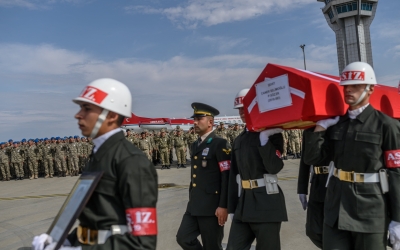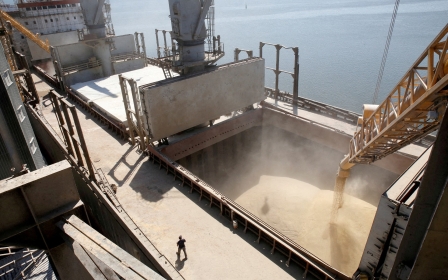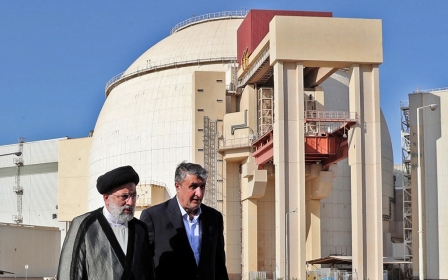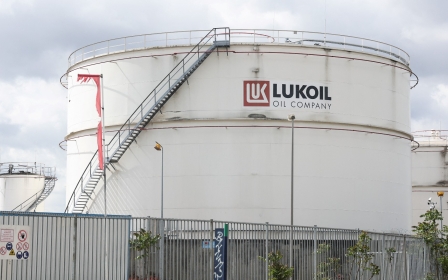Syria assault and spying allegations loom over Erdogan's trip to Iran
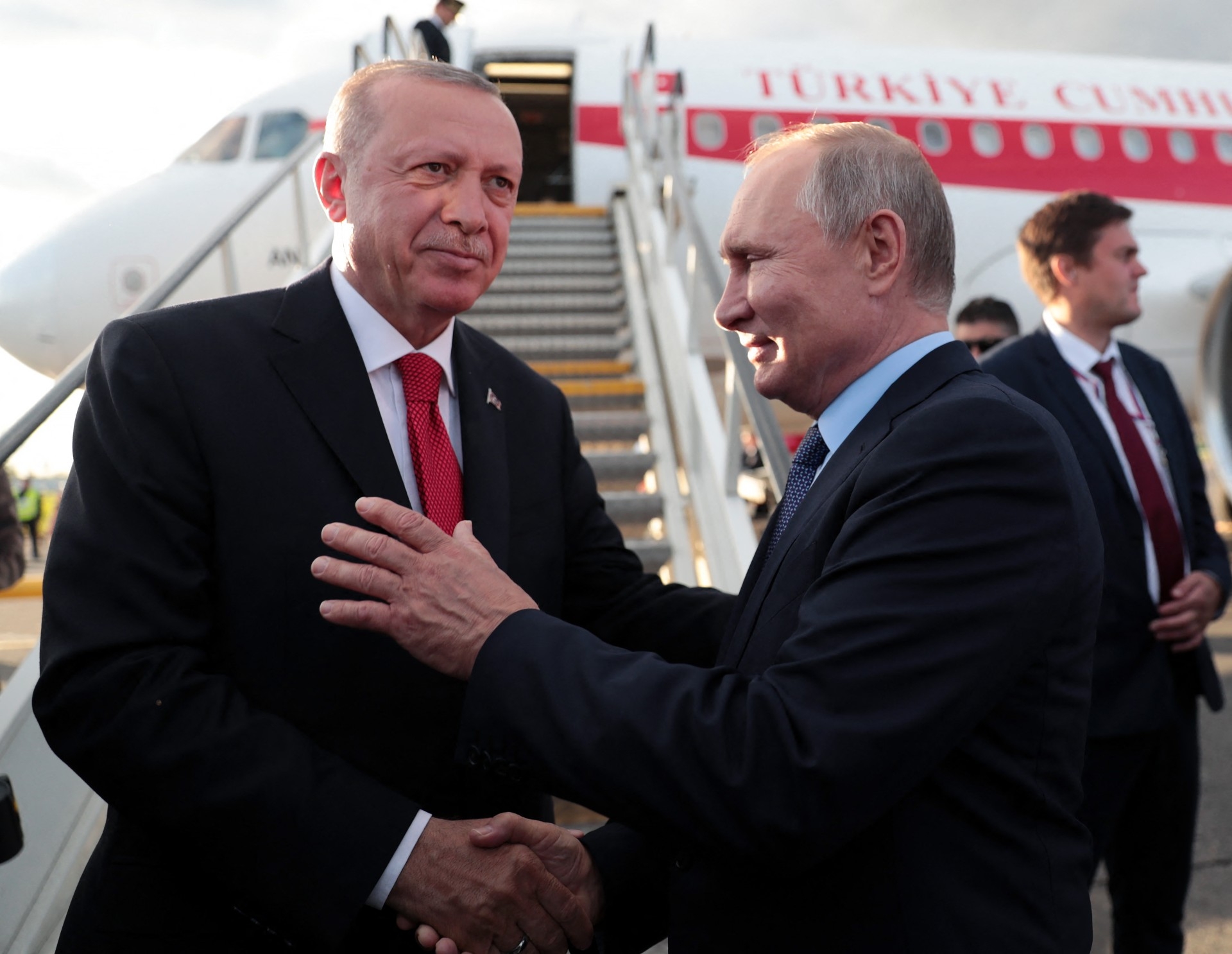
Turkey's President Recep Tayyip Erdogan heads to Iran on Tuesday under the shadow of increasing tensions between Ankara and Tehran over the latter’s intelligence activities on Turkish territory.
Erdogan and his Iranian counterpart Ebrahim Raisi are attending a round of high-level talks between their countries, and later will meet Russia's Vladimir Putin as part of the so-called Astana process to discuss Syria. It is believed the primary agenda will be Ankara’s wish to conduct a new military operation in northern Syria against Syrian Kurdish forces.
Erdogan has postponed visiting Iran several times over the past year, which has been interpreted in Turkey as a sign of troubled relations between the two countries.
Turkish authorities last month detained a suspected assassination team allegedly ordered by Iranian intelligence to kill Israeli tourists in Turkey.
Last month, the Israeli government claimed Tehran had been organising attempts to kill or kidnap Israeli tourists in Istanbul in response to the assassination of Colonel Hassan Sayyad Khodaei, a member of Iran’s powerful Revolutionary Guard.
New MEE newsletter: Jerusalem Dispatch
Sign up to get the latest insights and analysis on Israel-Palestine, alongside Turkey Unpacked and other MEE newsletters
Turkish sources close to the investigation told Middle East Eye that targeting tourists in Turkish territory was an absolute red line, and Ankara wouldn’t tolerate it.
“However, this series of Iranian steps, from covert activities to kidnap or kill Iranian dissidents to plans to target Israelis, have already taken a toll on the bilateral relations,” one Turkish source with knowledge of the government’s thinking said. “The trust is absolutely gone.”
'The trust is absolutely gone'
- Turkish source
Tensions between the two countries have been steadily rising since the killing of an Iranian dissident in Turkey in 2019, allegedly on the order of two Iranian diplomats.
Then, Iranian agents lured and kidnapped a leading dissident from Istanbul in October 2020, which sparked a public campaign by Turkish officials to name and shame the suspects with footage and police investigations.
It came as the Turkish military was dealing with an Iranian-backed Syrian government offensive on Syria's Idlib province in 2020, where dozens of Turkish soldiers were killed in an air strike blamed on both Damascus and Russian forces.
Turkey’s counteroffensive targeted hundreds of Iranian-backed militias and Hezbollah-linked groups.
Iranian-linked militias also regularly target Turkish bases in northern Iraq as a way to pressure Ankara.
In recent weeks, Iranian officials opened a new front: blaming Turkey for the sandstorms engulfing Iran and other parts of the region, saying Ankara’s policies of building large dams on the Euphrates and Tigris rivers parched swathes of land and triggered an environmental disaster.
Turkish officials say the Iranian argument is propaganda aimed at deflecting domestic criticism. “Climate change and their own water policies created hazardous conditions in the country such as Lake Urmia,” a Turkish official said on condition of anonymity.
“We take note of this hostile rhetoric that appears in the Iranian media and among the low-level officials.”
Anger over the PKK
Hakki Uygur, president at the Centre for Iranian Studies in Istanbul, says the Turkish government may have deliberately postponed Erdogan’s trip to Iran until after Israeli and Saudi leaders visited Ankara, where photographs were taken with smiling faces.
“It is true that there is a sense of great tension between the two countries, that’s a fact,” Uygur told MEE. “However, both countries still need to talk and work on various issues, from Syria and Iraq to energy and terrorism.”
Uygur said despite the tensions, private talks may develop more positively if Iran comes up with genuine proposals that benefit Turkey's security situation in Syria and Iraq - things that the Erdogan government wouldn’t want to refuse.
Another source familiar with the Turkish government’s thinking said Ankara was particularly bothered by the ongoing Iranian attitude towards the Kurdistan Workers’ Party (PKK), which has been designated a terror group by Turkey, the EU and the US.
“Iran, the past couple of times, promised to go after the PKK, but the cooperation would only last a few months for face-value reasons,” the source said. “They maintain their cooperation with PKK in Iraq near the areas of Sinjar and allow free access to PKK in Iran."
The source added that Iran was also slowly but surely changing the demographics in Syria's Aleppo - but also Iraq's Mosul, a city that has traditionally been a Sunni stronghold but was devastated after the Islamic State group was forced out in 2017.
"Iran needs to be smart on how it is approaching Turkey, since Ankara has alternatives, such as Israel," the source said.
The Turkish military has been sending reinforcements to northern Syria, especially areas near the town of Tal Rifaat, which is held by the People’s Protection Units (YPG), a US-backed militia that Turkey considers the PKK's Syrian branch.
Iran, due to its close affiliation to Aleppo’s majority-Shia dominated districts such as Nubl and al-Zahraa, values Tal Rifaat and opposes the prospect of Turkish-backed Syrian rebel groups seizing it.
The second source said Turkey has repeatedly relayed the message to Iran that it has no intention of attacking or seizing these areas unless Kurdish forces attack Turkish troops.
It is possible these subjects will be discussed by the Turkish, Iranian and Russian presidents during their meeting on Tuesday. Yet a senior Turkish official said Astana process meetings were more complementary, rather than venues where leaders discuss core challenges.
Middle East Eye delivers independent and unrivalled coverage and analysis of the Middle East, North Africa and beyond. To learn more about republishing this content and the associated fees, please fill out this form. More about MEE can be found here.


